On July 5, Dr. Nguyen Hoang Khuong (Emergency Department, Tam Anh General Hospital, Ho Chi Minh City) said that the scan results showed a stroke. The HbA1c index (a test to evaluate blood sugar levels over the past 2-3 months) was nearly 11%, almost twice as high as normal people. The patient was diagnosed with a stroke due to diabetes complications.
According to Dr. Khuong, this is the second patient with a stroke due to diabetes complications admitted to the hospital in the past 3 days. Previously, a male patient (47 years old) had similar symptoms to Mr. T., was diagnosed with a stroke, type 2 diabetes with high blood sugar of 200 mg/dL (normal for people is 70-100 mg/dL), HbA1c of nearly 8%. In June, the hospital also admitted 4-5 people under 50 years old with stroke and high blood sugar but did not know they had the disease before.
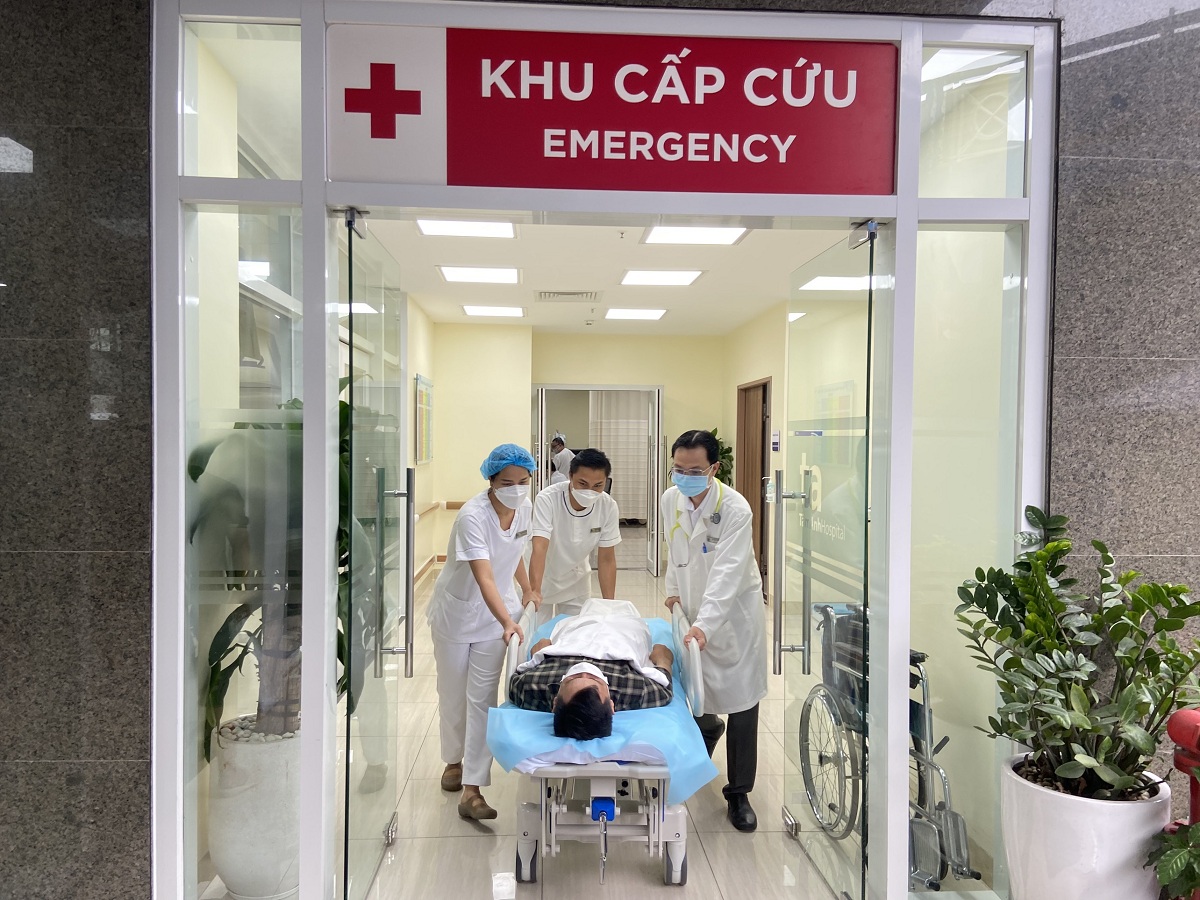
Transfer stroke patient to the Emergency Department
Doctor CKII Tran Thuy Ngan (Department of Endocrinology - Diabetes) said that both patients were treated for cerebral stroke with dual antiplatelet drugs, blood lipid lowering, brain tonic and insulin injections to stabilize blood sugar. Patients were instructed on appropriate diet and exercise upon discharge.
"Long-term high blood sugar levels promote the accumulation of fat in the arteries, forming atherosclerotic plaques that lead to blood clots or arterial blockages that damage blood vessels. Damage to the vascular system will affect the function of the nerves, eyes, kidneys, heart, brain...", Dr. Ngan analyzed.
People with diabetes have a 2-4 times higher risk of stroke than normal people, and the risk of stroke is higher in young people with the disease. Stroke patients with poorly controlled blood sugar levels have a higher mortality rate and more severe post-stroke complications.
"To reduce the risk of stroke, patients also need to control blood sugar and maintain a healthy lifestyle such as having a reasonable diet, it is best to only eat 3 main meals, can eat extra meals if hungry, choose starch that is not too refined, eat a lot of fiber, reduce salt intake, drink enough water, limit fast food and processed foods," Dr. Ngan recommends.
Source link


![[Photo] National Assembly Chairman Tran Thanh Man chairs the meeting of the Subcommittee on Documents of the First National Assembly Party Congress](https://vphoto.vietnam.vn/thumb/1200x675/vietnam/resource/IMAGE/2025/5/8/72b19a73d94a4affab411fd8c87f4f8d)

![[Photo] General Secretary concludes visit to Azerbaijan, departs for visit to Russian Federation](https://vphoto.vietnam.vn/thumb/1200x675/vietnam/resource/IMAGE/2025/5/8/7a135ad280314b66917ad278ce0e26fa)


![[Photo] President Luong Cuong presents the decision to appoint Deputy Head of the Office of the President](https://vphoto.vietnam.vn/thumb/1200x675/vietnam/resource/IMAGE/2025/5/8/501f8ee192f3476ab9f7579c57b423ad)



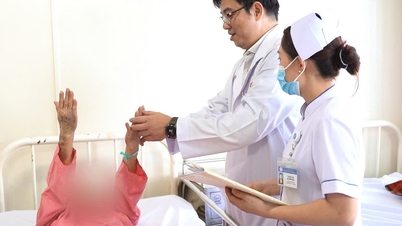



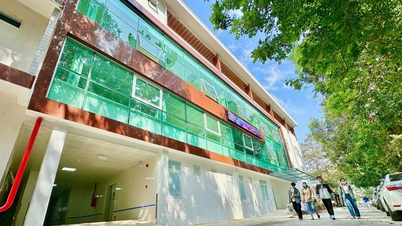



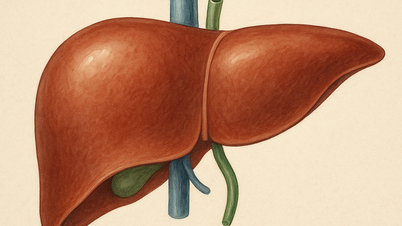

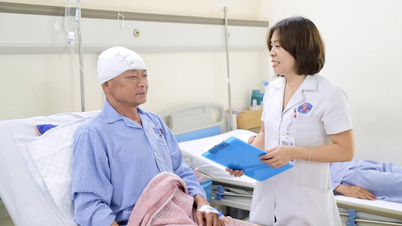












![[Photo] General Secretary To Lam receives leaders of typical Azerbaijani businesses](https://vphoto.vietnam.vn/thumb/1200x675/vietnam/resource/IMAGE/2025/5/8/998af6f177a044b4be0bfbc4858c7fd9)





























![[Photo] Prime Minister Pham Minh Chinh talks on the phone with Singaporean Prime Minister Lawrence Wong](https://vphoto.vietnam.vn/thumb/402x226/vietnam/resource/IMAGE/2025/5/8/e2eab082d9bc4fc4a360b28fa0ab94de)

































Comment (0)